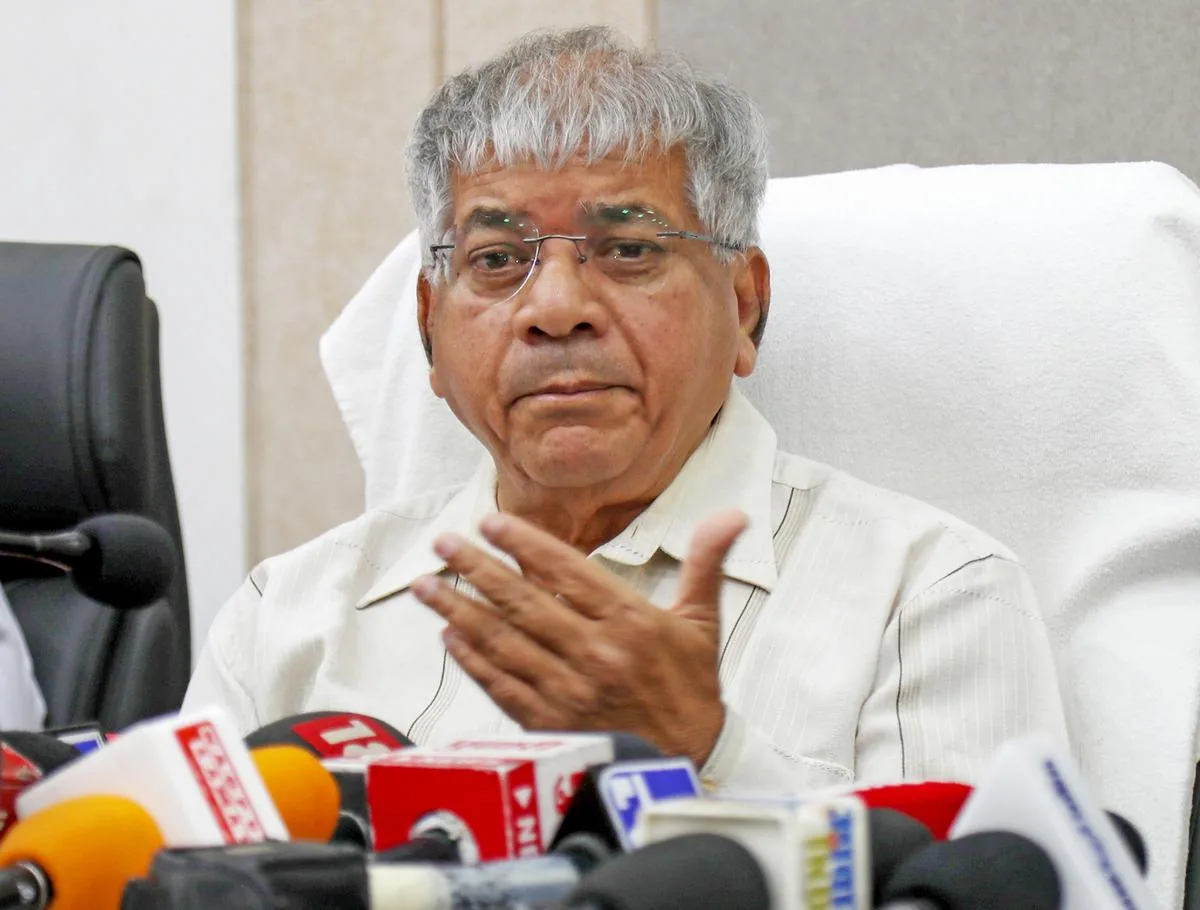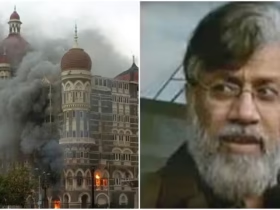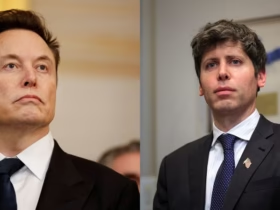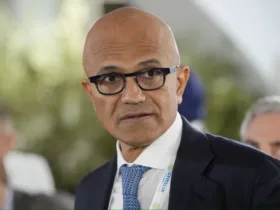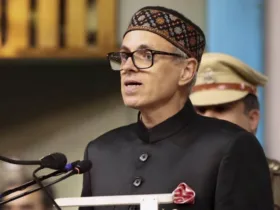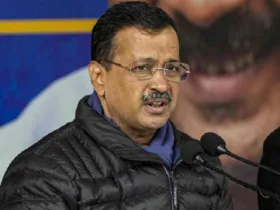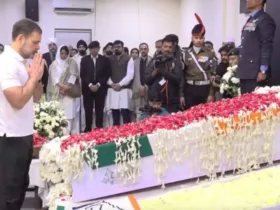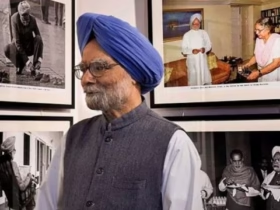The recent remarks by Union Home Minister Amit Shah in the Rajya Sabha have sparked a significant political controversy. Shah’s comments about Dr. B.R. Ambedkar, the architect of India’s Constitution, were met with sharp criticism from various quarters, including Prakash Ambedkar, Dr. Ambedkar’s grandson. Prakash Ambedkar dismissed Shah’s statements as “nothing new,” pointing to a historical and ideological divide between the BJP and Dr. Ambedkar’s legacy.
Amit Shah’s Remarks
During a debate in the Rajya Sabha, Amit Shah commented on the frequent invocation of Dr. Ambedkar’s name in political discourse. He stated, “It has become a fashion to repeatedly invoke Ambedkar’s name. If they had taken God’s name as often, they would have earned a place in heaven.” Shah’s remarks, interpreted by many as dismissive of Dr. Ambedkar’s towering contributions, quickly drew criticism from opposition leaders and social activists alike.
Prakash Ambedkar’s Response
Prakash Ambedkar, a seasoned politician and leader of the Vanchit Bahujan Aghadi (VBA), strongly reacted to Shah’s comments. He dismissed the remarks as emblematic of the BJP’s longstanding ideological opposition to Dr. Ambedkar’s principles. “There is nothing new in the statement,” Prakash Ambedkar said. He alleged that the BJP, along with its predecessors like the Jan Sangh and RSS, had historically opposed Dr. Ambedkar during the drafting and adoption of the Indian Constitution.
Linking Shah’s Remarks to ‘Manuwad’
Prakash Ambedkar further interpreted Shah’s remarks as a subtle endorsement of the caste-based hierarchical structures Dr. Ambedkar vehemently opposed. He suggested that Shah’s statement reflected an ideological preference for religious reverence over the principles of justice, equality, and rationalism championed by Dr. Ambedkar. According to him, this mindset stems from a discomfort with the transformative social vision embedded in Dr. Ambedkar’s work.
Political Fallout
Shah’s remarks led to a significant uproar in Parliament, with opposition parties, particularly those from the INDIA bloc, staging protests. The opposition demanded an apology from Shah, accusing him of belittling Dr. Ambedkar and undermining his contributions to India’s democratic framework.
Congress’s Reaction
Congress leader Jairam Ramesh and others took to social media to highlight Shah’s remarks, framing them as an attempt to diminish Dr. Ambedkar’s legacy. They accused the BJP of disrespecting Dr. Ambedkar while simultaneously claiming to honor his contributions. Opposition parties shared video snippets of Shah’s speech, which were widely circulated to fuel public outrage.
BJP’s Counterattack
In response, Prime Minister Narendra Modi and the BJP accused the Congress of misrepresenting Shah’s remarks. Modi alleged that the Congress has a history of sidelining Dr. Ambedkar, pointing out instances where the party had denied him the Bharat Ratna and opposed his electoral bids. Modi sought to frame the BJP as the true custodian of Dr. Ambedkar’s legacy, citing initiatives like the Ambedkar International Centre and other projects honoring his memory.
Historical Context: BJP, Congress, and Ambedkar’s Legacy
The debate surrounding Amit Shah’s remarks underscores the contested nature of Dr. Ambedkar’s legacy in Indian politics.
Congress and Ambedkar
While the Congress played a central role in adopting the Indian Constitution, it has often been criticized for neglecting Dr. Ambedkar’s contributions during his lifetime. Critics point to the party’s failure to adequately address caste-based inequalities and its initial reluctance to honor Dr. Ambedkar’s achievements. In recent years, the Congress has sought to reclaim Dr. Ambedkar’s legacy, highlighting its role in enshrining his vision in the Constitution.
BJP and Ambedkar
For the BJP, Dr. Ambedkar represents an opportunity to appeal to Dalit voters. The party has often highlighted its initiatives to honor Dr. Ambedkar, such as the development of memorials and programs aimed at Dalit upliftment. However, critics argue that the BJP’s ideological roots in the RSS and its policies often conflict with Dr. Ambedkar’s vision of an egalitarian society.
Prakash Ambedkar’s Role in Preserving the Legacy
Prakash Ambedkar has emerged as a vocal advocate for safeguarding his grandfather’s legacy. As the leader of the VBA, he has sought to create a political platform that aligns with Dr. Ambedkar’s vision of social justice, equality, and constitutional values. His critique of Amit Shah’s remarks reflects his broader concern about the erosion of these principles in contemporary Indian politics.
The Relevance of Ambedkar’s Ideas Today
The controversy highlights the enduring relevance of Dr. Ambedkar’s ideas in modern India. Issues like caste-based discrimination, socio-economic inequality, and the protection of civil liberties remain pressing concerns. Dr. Ambedkar’s emphasis on education, empowerment, and social reform continues to inspire movements for justice and equality across the country. His vision of a society free from caste hierarchies and oppression remains a cornerstone of India’s democratic aspirations.
Broader Implications
The exchange between Amit Shah and Prakash Ambedkar is more than just a political spat; it represents a deeper ideological clash over the interpretation and implementation of Dr. Ambedkar’s ideas. The controversy serves as a reminder of the critical importance of safeguarding the principles enshrined in the Indian Constitution—justice, equality, and democracy.
Conclusion
The controversy surrounding Amit Shah’s remarks and Prakash Ambedkar’s response underscores the ongoing political and ideological debates surrounding Dr. Ambedkar’s legacy. While political parties continue to invoke his name, the challenge lies in translating his vision into actionable policies that address the persistent inequalities in Indian society. For leaders like Prakash Ambedkar, the fight to uphold Dr. Ambedkar’s ideals remains as crucial today as it was during his lifetime.

